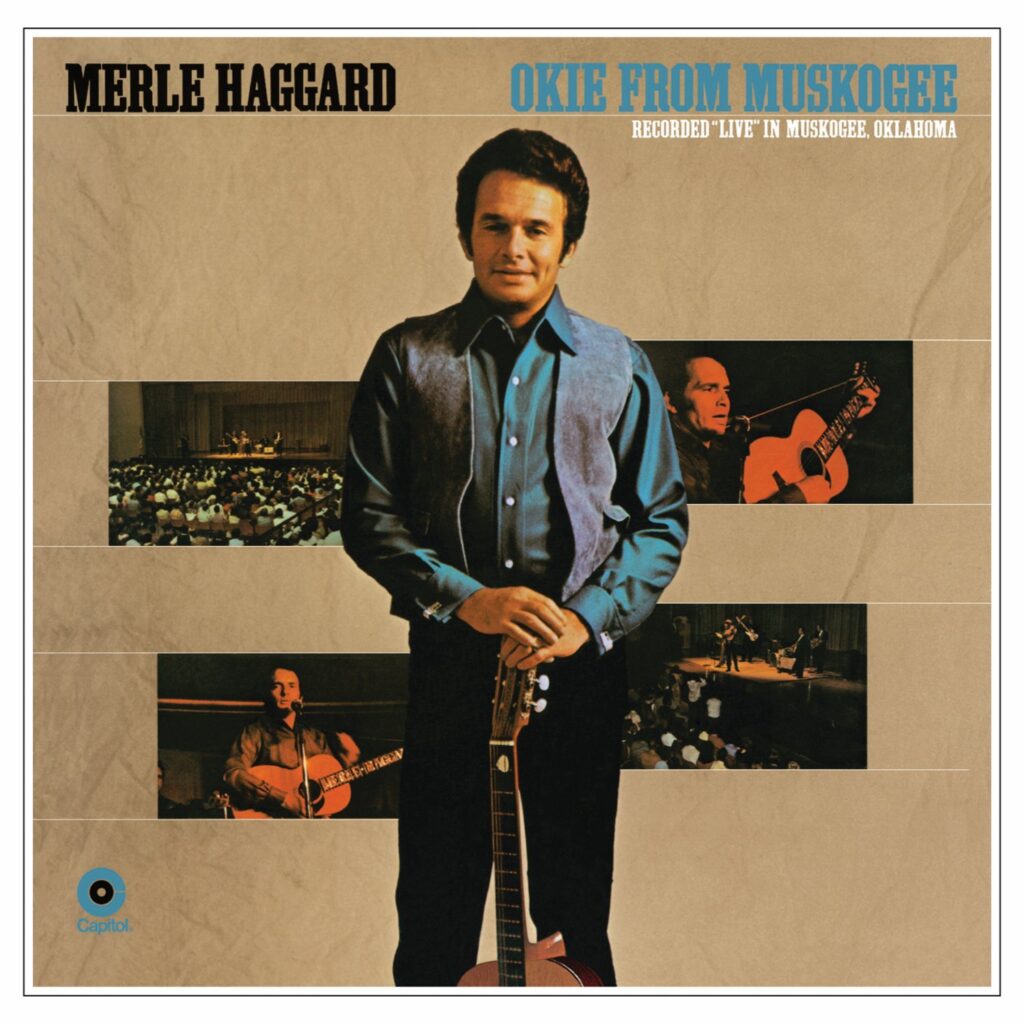A Proud Anthem of Place and Principle in a Tumultuous Time
When Merle Haggard released “Okie from Muskogee” in September 1969, the single quickly carved its way into the American consciousness, climbing to No. 1 on the Billboard Hot Country Singles chart and holding its position for four weeks. Featured on the live album “Okie from Muskogee,” released later that same year, the song became one of Haggard’s most iconic and controversial works—a cultural touchstone that resonated far beyond the confines of country music. In just under three minutes, Haggard delivered a deceptively simple tune that became both a lightning rod for debate and a rallying cry for a silent majority weary of the countercultural upheaval defining late 1960s America.

The context of its creation is inseparable from the broader national mood. America in 1969 was splintered: Vietnam raged overseas, protests flared at home, and generational divides deepened with each passing headline. Amidst this backdrop, Haggard, the Bakersfield-born son of Dust Bowl migrants who had known prison as well as poverty, found himself struck by a sense of both nostalgia and defiance. According to Haggard himself in later interviews, “Okie from Muskogee” began as something of a joke during a road trip—an ironic commentary made in jest with his drummer Roy Burris about how his father might have viewed hippies. But what started as satire evolved into something more complex: an anthem that gave voice to conservative values and small-town pride at a time when such sentiments were increasingly marginalized by the dominant media narratives.
The lyrical content is direct, even defiant: “We don’t smoke marijuana in Muskogee / We don’t take our trips on LSD.” Each line draws a sharp contrast between perceived rural American virtues and the libertine excesses attributed to the youth counterculture. But beneath its surface simplicity lies an artful tension between caricature and candor. Was Haggard mocking the rigidity of conservative values or earnestly defending them? He famously played coy about his intent over the years, allowing listeners to project their own meanings onto the song. This ambiguity gave “Okie from Muskogee” an enduring potency—it was embraced by some as an unflinching declaration of traditional patriotism and derided by others as a parochial dismissal of social progress.
Musically, the track eschews ornamentation for clarity. Its honky-tonk rhythm and straightforward chord structure provide a sturdy framework for Haggard’s expressive baritone—a voice steeped in hard-won authenticity. The live album version adds another layer of texture, capturing not only the performance but also the roaring approval of an audience who saw their lives reflected in every lyric.
In hindsight, “Okie from Muskogee” stands not merely as a hit single but as a cultural document—a snapshot of Middle America at a moment when it felt besieged yet unbowed. For all its controversy, it revealed something elemental about music’s power: to affirm identity, to provoke dialogue, and to become part of a nation’s shared emotional archive. Whether you embrace its message or question its assumptions, there’s no denying its place in the pantheon of American songwriting—a proud anthem rooted not just in Muskogee, but in memory itself.